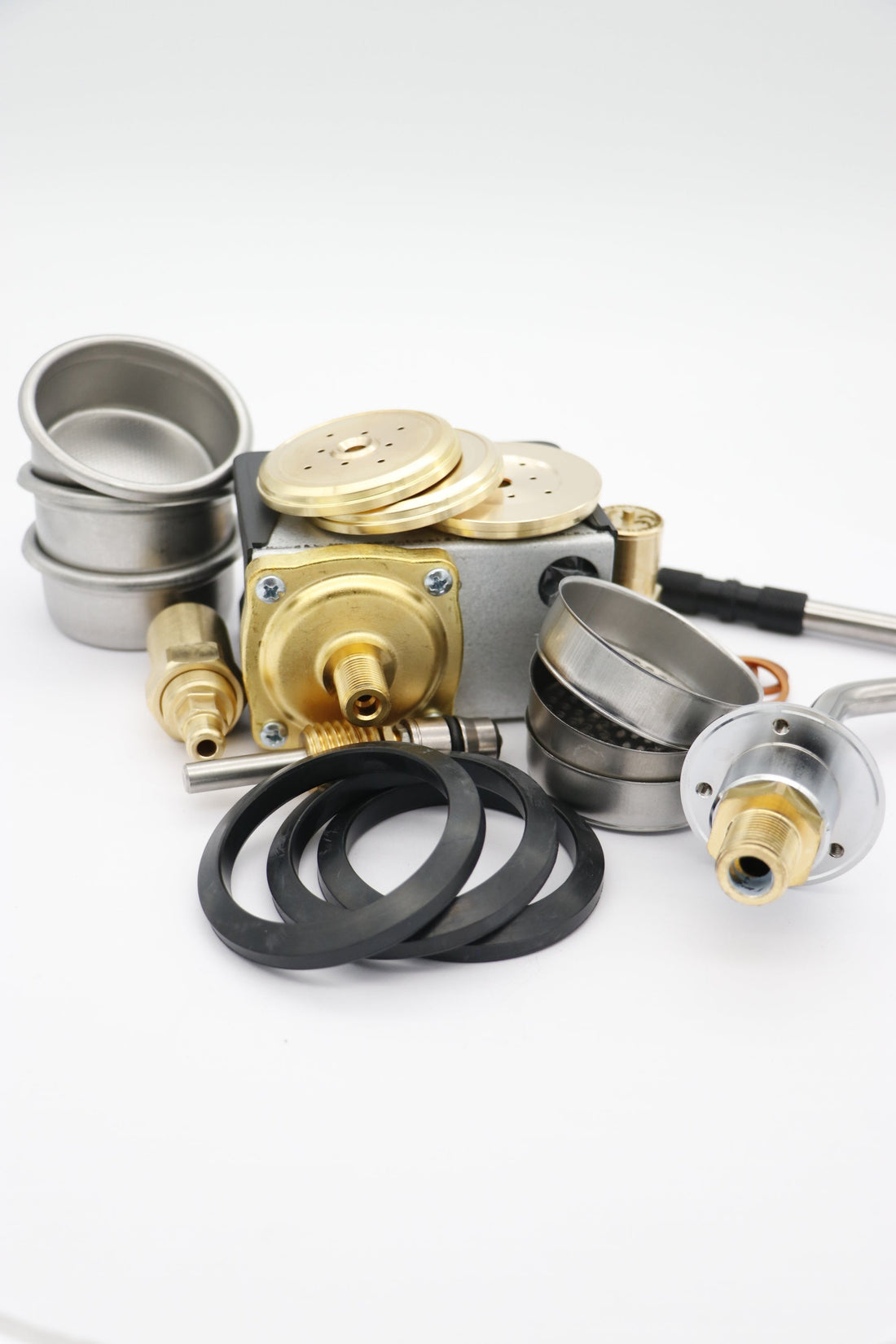
Top 5 Tips for Technicians and Service Companies When Sourcing Spare Parts
David BurchettShare
In the world of commercial coffee equipment, the smallest component can make the biggest difference. A misfitted gasket, a low-grade solenoid, or an unreliable pump doesn’t just stop a machine, it stops service, costs cafés money, and damages your reputation as a technician.
Sourcing parts isn’t simply about price or speed. It’s about ensuring that the components you install are tested, traceable, and backed by a supply chain you can trust. Here are five technical tips to keep in mind when choosing a parts supplier.
Ask About Quality Control Standards
Do you know what quality control testing your supplier uses? A strong supply partner should be able to explain how parts are checked before reaching your bench. This can include performance testing, dimensional checks, and batch traceability. If your supplier can’t give you confidence in their QC processes, you’re taking on unnecessary risk with every install.
Verify Compatibility and Fit
It’s not enough for a part to “look” right. Even small differences in design can lead to leaks, poor fit, or premature wear. Always make sure your supplier cross-checks parts against manufacturer specifications and provides clear part number references. For example, group seals vary by thickness and material. The wrong choice can affect how a portafilter locks in and how long the seal lasts in daily use. Reliable compatibility means smoother installs and fewer repeat callouts.
Check for Traceability and Documentation
A professional service business needs more than “here’s the part.” Ask your supplier if they provide:
- Part numbers cross-referenced with OEM documentation.
- Certificates or testing information for critical components.
- Clear labelling to avoid mix-ups in your van or workshop.
Traceability reduces warranty risks, makes troubleshooting easier, and adds confidence when servicing premium equipment like Nuova Simonelli, Victoria Arduino, Slayer, and La Cimbali.
Assess Supply Chain Reliability
It doesn’t matter how good a part is if you can’t get it when you need it. Ask yourself:
- Does the supplier hold consistent stock levels of the brands you service most?
- Do they provide accurate ETAs and tracking updates?
- Can they scale with your workload, especially during peak seasons?
Downtime is the enemy. The best suppliers invest in logistics and visibility so you don’t waste time chasing parts.
Consider Long-Term Support, Not Just Transactions
A technician’s reputation is built on reliability and knowledge. The right supplier is more than a warehouse, they’re a technical partner. Look for signs they can:
- Support your training with up to date product knowledge.
- Provide insights into part lifecycles and common failure points.
- Help you grow your service capability, not just fill orders.
Suppliers who understand the full service environment add far more value than those who only ship boxes.
Final Thoughts
The parts you install are a reflection of your workmanship. By asking the right technical questions about quality control, compatibility, traceability, supply reliability, and long-term support, you not only protect your customers, you also elevate your business.
At LYNCS, we believe in transparency and technical excellence at every stage of the supply chain. Because when every connection counts, every part matters.
Fast parts. Smart service. A connected future.
